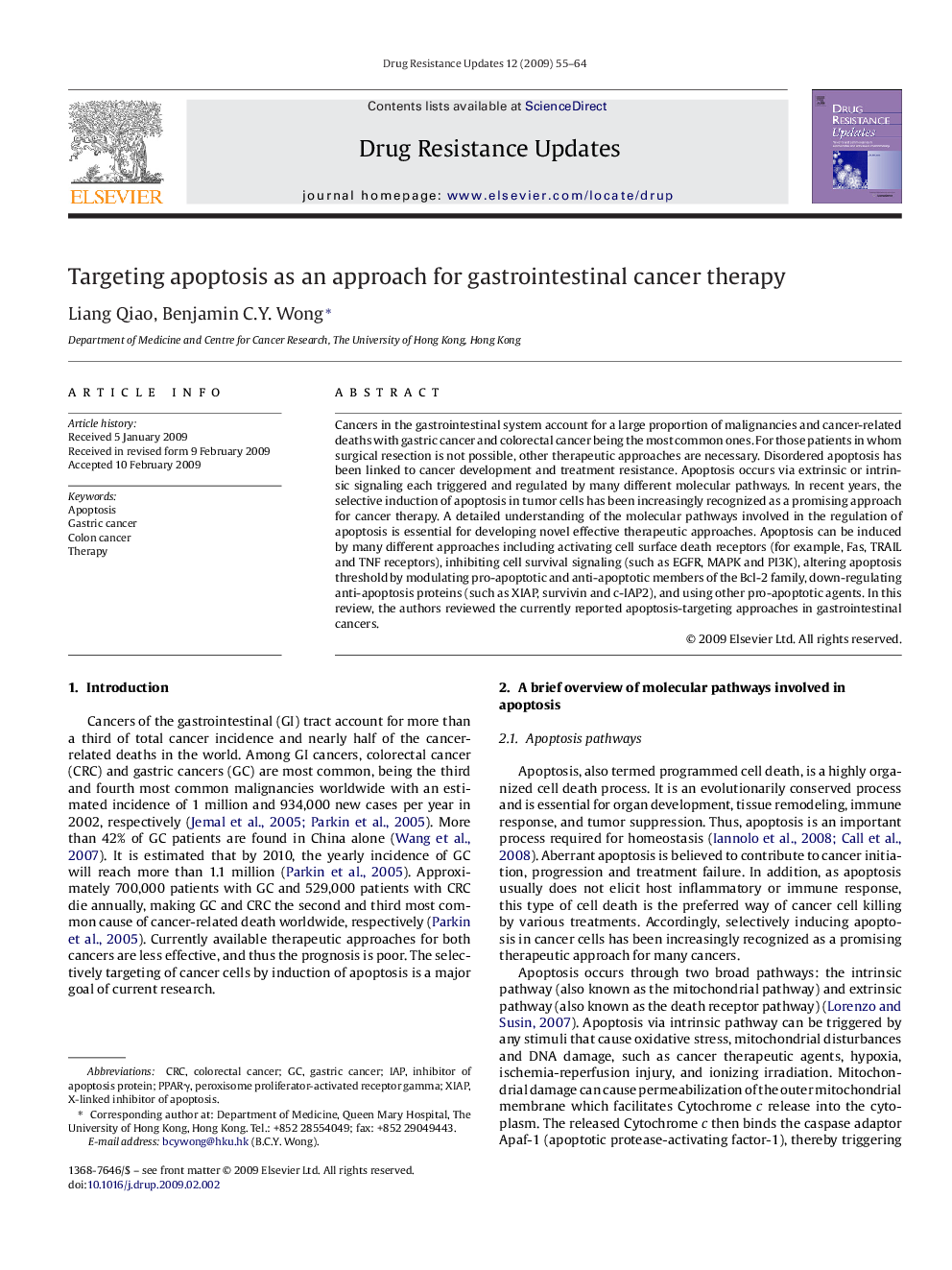| Article ID | Journal | Published Year | Pages | File Type |
|---|---|---|---|---|
| 2120406 | Drug Resistance Updates | 2009 | 10 Pages |
Cancers in the gastrointestinal system account for a large proportion of malignancies and cancer-related deaths with gastric cancer and colorectal cancer being the most common ones. For those patients in whom surgical resection is not possible, other therapeutic approaches are necessary. Disordered apoptosis has been linked to cancer development and treatment resistance. Apoptosis occurs via extrinsic or intrinsic signaling each triggered and regulated by many different molecular pathways. In recent years, the selective induction of apoptosis in tumor cells has been increasingly recognized as a promising approach for cancer therapy. A detailed understanding of the molecular pathways involved in the regulation of apoptosis is essential for developing novel effective therapeutic approaches. Apoptosis can be induced by many different approaches including activating cell surface death receptors (for example, Fas, TRAIL and TNF receptors), inhibiting cell survival signaling (such as EGFR, MAPK and PI3K), altering apoptosis threshold by modulating pro-apoptotic and anti-apoptotic members of the Bcl-2 family, down-regulating anti-apoptosis proteins (such as XIAP, survivin and c-IAP2), and using other pro-apoptotic agents. In this review, the authors reviewed the currently reported apoptosis-targeting approaches in gastrointestinal cancers.
